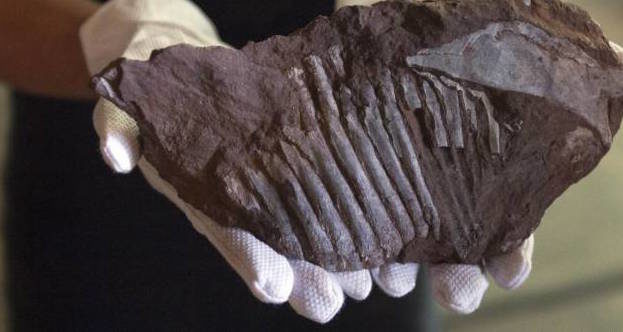In the first post in this series I explored the possible benefits of external ex officio directors. These are places on the board for representatives of outside organizations. It was a call to dust off this artifact of non-profit board structure and modernize it.
I turn my gaze here to ex officio positions that are part of internal decision making structures. This has to do with adding more responsibility, generally without any specifics, to the work of those who are in primary governance roles. Usually this involves designating the board chair (or president), and the executive director (or CEO), where there is one, as an ex officio member of one or more board committees.
My goal here, as in the earlier exploration, is to look more closely at this feature of non-profit governance. The practice of creating ex officio roles is not only common but routine. Indeed, the concept is boiler plate language in bylaws and policies. The practice could to be exposed to the power of a few questions. Perhaps this will encourage nonprofit leaders to be more intentional when the ancient term shows itself in modern governance life.
Origins
I do not know if it has to do with its Roman, not just Latin, roots, or its lawyerly character, but the term ex officio is still widely used in the non-profit sector. It is a fancy way of saying that someone has duties other than their normal ones, in a governance role, typically as part of committee.
It is widely assumed, although it is a misconception, that ex officio membership on boards means that they are not voting positions. The practice of non-voting positions may be OK for external ex officios since they often participate in a consulting role. What of ex officio board chairs or executive directors? Is their vote important on board committees? Maybe, maybe not. The work there often involves formulating options or recommendations for action rather than making decisions. Moreover, chair and executive director views carry lots of weight anyway. So perhaps the question of chair and executive director ex officio voting is moot. In any case there are bigger questions to consider.
What Purposes?
So, what is the reason behind having the board chair or the executive director as an ex officio member of a committee of the board? Is this structural feature intended to:
- Facilitate more effective internal communication and coordination?
- Insure some control or oversight of committee work?
- Insure, at least in the case of the executive director, that the committee has someone on it with deep organizational expertise?
- Some or all of the above?
It is not enough just to say yes and leave it at that. Each reason has its own rationale and action expectations. Also, these may change over time even though the ex officio role has likely been carved into organizational stone. Moreover, some purposes may be more relevant to some committees than to others.
Should ex officios attend?
Here’s a question. If your board chair is an ex officio of, say, the Human Resource Committee, do you expect her to regularly attend the meetings? The answer might require one to examine the archives to determine what was intended. My guess though, is that ex-officios are often named to ensure that key players are in the communication loop. This is accomplished, in part, by sending them meeting notices and the resulting notes or minutes.
In any case the expectation of attendance will depend on the people, circumstances and, more importantly, if the ex officio is the chair or the executive director. More is expected of the latter.
Board chairs as ex officio
What are the expectations of board chairs when they serve as ex officios on committees? As a chair or president, you may want to know rather than assume. I am repeating myself here, but the questions you could have are:
- Am I expected to attend and participate in meetings or just review minutes of those meetings?
- If I am not regularly present but discover there is an issue what do I do?
- When present am I supposed to serve more as an observer or as an active participant?
- Am I expected to provide any committee leadership?
- How will my presence or monitoring affect others who could provide committee leadership?
- How does this role relate to my primary role?
- What is the time commitment?
- What is different about this responsibility today than when it was written into my job description?
- Will the exercise of this responsibility differ depending on the committee? If so, where and how?
Executive directors as ex officio
Designating an executive director as an ex officio on a board committee is a different kettle of fish. It is complicated by the issue of when is the executive director more a partner than an employee?
Here one should first turn to questions about the organization’s board committee practices. This includes the determination of whether a committee has been set up to help the board do its work or the executive director to do hers. This is an essential distinction when it comes to establishing committees, and there are other considerations. Much has been written on good committee practices.[1]See, for example, my governance guide: Should We Form a Board Committee?
The questions above on the ex officio role of the chair all seem relevant here as well. There are three other questions on the ex officio role of executive directors:
- What is the purpose of having the ED on this committee (from above)?
- Does the committee have any authority to direct the ED?
- To what extent does the ED function as staff support to the Committee?[2]The idea of the executive director providing staff support to a committee can be problematic itself. This is especially the case where he/she is doing all the work, including logistics, outside of … Continue reading
Done for now
So, there it is; my look at the ex officio role of board chairs and executive directors on committees. I hope my digging has revealed something of value. Comments, as always, are invited.
***
The image for this post is of a fossil of the rib cage of a sail-back reptile found by the Keating family while walking on the Northumberland shore in Nova Scotia in August 2012. The mammal-like reptile lived during the late Carboniferous Period or early Permian Period, making it 290 million to 305 million years old. This is regarded as a significant fossil discovery in a province known for them. The Joggins Fossil Cliffs, one of the province’s most fossil-rich areas, was named a UNESCO World Heritage Site. Image courtesy of the Nova Scotia Museum of which the Fundy Geological Museum, a board governed member of this museum system, interprets and displays much of this aspect of our natural history.
References




I would be interested to know if it is appropriate for the Executive-Director to chair the organization’s Legislative and Bylaw committee?
If it is not appropriate what are the reasons? If it is appropriate what are the advantages? Thanks so much.
Thanks for commenting on this post.
It would seem to me that a Legislative and Bylaw Committee would be be dealing with board matters not strategic or operational matters. The same would be true of a nominations or board recruitment committee. I would not so so far as saying it would be “inappropriate” but why would one add this to the ED’s workload? Good practice would suggest that the ED ought not be responsible for the effectiveness of the Board and that includes, in my view, insuring the board operates according its bylaws or seeks changes to them. I can imagine needing the ED’s input on bylaws especially if the board is relatively new and the ED has a long and deeper knowledge of the organization.
I would guess there may be extenuating circumstances in your situation. Not knowing them, I see no advantage to having the ED chair ANY board committee. The disadvantage, in this case especially, it that it lets directors off the hook on a matter that is clearly one they should own.
But what if in a situation whereby the founder is appointed as the Executive Director and also becomes the Chairman of the Executive Committee ?
Yusuf
A founder being appointed executive director (ED) is not uncommon and can lead to this person having an uncommon amount of power and influence relative to the board especially in the early days of the organization when the board may be hand picked by the founder. The founder’s extraordinary influence in the ED role may be normalized as the board turns over. Much has been written on the influence of founders in non-profits. Here is an good article, written more a decade ago, by Hildy Gottlieb that may be of value. It is not really an ex officio issue.
The executive director whether a founder or not, probably should not be the chair of the executive committee. It is good for all involved to
keep in mind that the role of chair at any level should be seen more as a functional than an authoritative one. The role involves calling meetings, helping set the meeting agenda and facilitating the discussion. The board chair or even the vice chair may be a better choice as executive committee chair than the ED.
Not every organization needs and executive committee and where a founder is involved such a committee can be a more of a closed decision-making group, effectively leading to a board that only “rubber stamps” many executive decisions.
Thanks for the question.